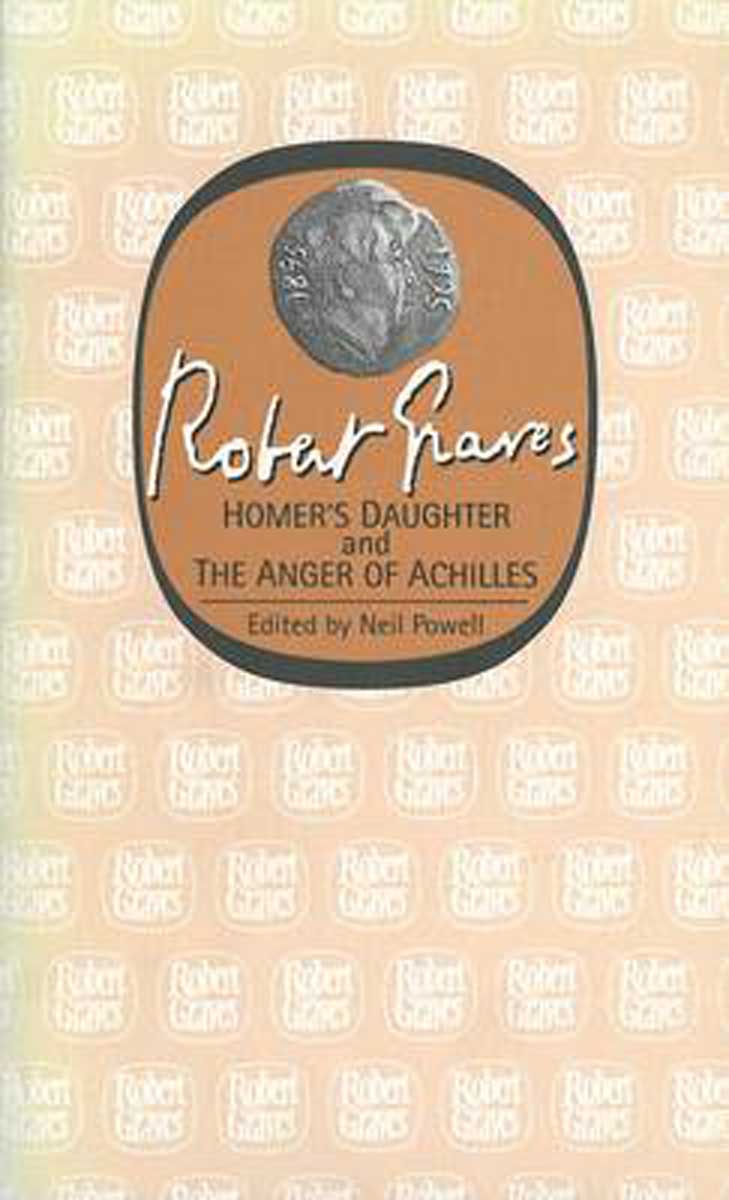"Homer's Daughter" and "The Anger of Achilles"
We don't know who, or even if, Homer was. Given threads of internal evidence in the "Odyssey", Robert Graves invents, or discovers, that the author of the poem was a woman, herself part of the epic action. He chooses the beguiling, clear-headed Nausicaa and re-visions the post-Trojan world through her eyes. This is the theme of Homer's Daughter, one of Graves' most daring fictional acts.
The "Odyssey" has been described as a "women's" epic, full of female characters and different in kind and colour from the Iliad with its tight focus, its largely male world. Graves' Nausicaa is brilliant at telling stories and she recounts speeches with dramatic aplomb. The confrontations in the Council and between Aethon and the suitors are memorably evoked.
Nausicaa is a princess of mixed Greek and other ancestry, combining in herself the various cultures that inform the language and folklore of the epic. Graves makes it possible for us to believe that the epic's author told her own story, a true one, buried within the Homeric epic. There is adventure and intrigue; the book stands near the beginning of a tradition that includes Leonardo Sciascia's "The Council of Egypt" and Umberto Eco's "The Name of the Rose".
Homer's Daughter is reprinted here with Graves' ambitious Homeric translation "The Anger of Achilles", which culminates in the death of Hector, emblem of the doom of Troy itself.
The "Odyssey" has been described as a "women's" epic, full of female characters and different in kind and colour from the Iliad with its tight focus, its largely male world. Graves' Nausicaa is brilliant at telling stories and she recounts speeches with dramatic aplomb. The confrontations in the Council and between Aethon and the suitors are memorably evoked.
Nausicaa is a princess of mixed Greek and other ancestry, combining in herself the various cultures that inform the language and folklore of the epic. Graves makes it possible for us to believe that the epic's author told her own story, a true one, buried within the Homeric epic. There is adventure and intrigue; the book stands near the beginning of a tradition that includes Leonardo Sciascia's "The Council of Egypt" and Umberto Eco's "The Name of the Rose".
Homer's Daughter is reprinted here with Graves' ambitious Homeric translation "The Anger of Achilles", which culminates in the death of Hector, emblem of the doom of Troy itself.
About the author
Robert Graves (1895-1985), poet, classical scholar, novelist, and critic, was one of the greatest writers of the 20th Century. Athough he produced over 100 books he is perhaps best known for the novel "I, Claudius" (1934), "The White Goddess" (1948) and "Greek Myths" (1955).
Robert Graves was born in Wimbledon, South London. His father, Alfred Percival Graves, was a school inspector, and his mother, Amalie von Ranke Graves, was a great-niece of the German historian Leopold von Ranke (1795-1866). He was educated at Charterhouse, and awarded a B. Litt by St. John's College, Oxford after his return from World war I, where he served alsongside Siegfried Sassoon.
Robert Graves died in 1985 in Deja, the Majorcan village he had made his home (with the exception of the Spanish Civil War and the Second World War) since 1929.
Robert Graves was born in Wimbledon, South London. His father, Alfred Percival Graves, was a school inspector, and his mother, Amalie von Ranke Graves, was a great-niece of the German historian Leopold von Ranke (1795-1866). He was educated at Charterhouse, and awarded a B. Litt by St. John's College, Oxford after his return from World war I, where he served alsongside Siegfried Sassoon.
Robert Graves died in 1985 in Deja, the Majorcan village he had made his home (with the exception of the Spanish Civil War and the Second World War) since 1929.


